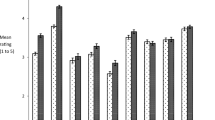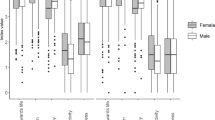Abstract
As a basis for considering the types of third level education and research activity that are required, research into the quality of life, social and civic attitudes, the components of competence, and the effectiveness of the educational system is first summarized.
It is concluded that there is no shortage of jobs to be done by hands which are-currently idle in our society, but, if the necessary work is to be undertaken, new understandings of society, economics, wealth, public policy and democracy are required. Both the managers of our society, and citizens in general, need to develop new perceptions, expectations, understandings and patterns of competence. It is concluded that the role of the university must change radically. One possibility would be for it to come to see itself, first and foremost, as a producer of new concepts and understandings and new tools to administer, and provide accountability within, modern society. If this were to happen, it would function only secondarily, in a very much reduced role, as a provider of highly specialised knowledge. Other institutions would take over the competencepromoting functions which second and third level educational institutions currently neglect. Although there is an urgent need for a major programme of adult education, that need might best be met by other educational agencies.
Similar content being viewed by others
References
Adams, B., Robbins, D. and Stephens, J. (1981). Validity and Validation in Higher Education. Research papers 1–4 and Summary report. North East London Polytechnic.
Advisory Board for Research Councils (1982). Report of the Working Party on Post Graduate Education. London: H.M.S.O.
A.S.T.M.S. (1983). The Leading Edge. London: ASTMS.
Flanagan, J. C. and Burns, R. K. (1955). “The employee performance record,” Harvard Business Review 33: 95–102.
Flanagan, J. C. and Russ-Eft, D. (1975). An Empirical Study to Aid in Formulating Educational Goals. California: American Institutes of Research.
Klemp, G. O., Munger, M. T. and Spencer, L. M. (1977). Analysis of Leadership and Management Competencies of Commissioned and Non-Commissioned Naval Officers in the Pacific and Atlantic Fleets. Boston: McBer & Co.
McClelland, D. C. (1965). “Toward a theory of motive acquisition,” American Psychologist 20: 321f.
McClelland, D. C. (1973). “Testing for competence rather than for intelligence,” American Psychologist 28: 1–14.
Pottinger, P. S. (1976). “Techniques and criteria for designing and selecting instruments for assessing teachers,” in Leviottov, B. (ed.), Licensing and Accredidation in Education. Nebraska: Curr. Dev. Center, Lincoln, NE.
Raven, J. (1973). “Values, attitudes and perceptions of socio-institutional structures in Ireland,” Economic and Social Review 4: 553–587.
Raven, J. (1975). “The role of social research in modern society,” Administration 23: 225–250.
Raven, J. (1975b). “The institutional structures and management styles required for policy-relevant social research,” Administration 23: 251–268.
Raven, J. (1977). “Government policy and social psychologists,” Bull. Br. Psychol. Soc. 30: 33–39.
Raven, J. (1977). Education, Values and Society: The Objectives of Education and the Nature and Development of Competence, London: H. K. Lewis. The Psychological Corporation, New York.
Raven, J. (1977). “On the components of competence and their development in education,” Teachers College Record 78: 457–475.
Raven, J. (1980). Parents, Teachers and Children. Sevenoaks: Hodder & Stoughton.
Raven, J. (1980b). “Teetering on the brink of a totalitarian society?” New Universities Quarterly 34: 370–382.
Raven, J. (1981a). “The most important problem in education is to come to terms with values,” Oxford Review of Education 7: 253–272.
Raven, J. (1981b). “Social research and development in the doldrums,” New Universities Quarterly 36: 72–86.
Raven, J. (1981c). “The competencies needed at work and in society,” Collected Original Resources in Education 5 (3): F1, A12.
Raven, J. (1982a). “Education and the competencies required in modern society,” Higher Education Review 15: 47–57.
Raven, J. (1982b). “Public policy in a changed society,” Higher Education Review 14: 80–89.
Raven, J. (1983a). “Towards new concepts and institutions in modern society,” New Universities Quarterly 37: 100–118.
Raven, J. (1983b). “Research in modern universities,” Higher Education Review 15: 80–84.
Raven, J. (1984a). Learning to Teach: Harsh Comments. Scottish Council for Research in Education.
Raven, J. (1984b) (forthcoming). Competence in Modern Society: An Introduction to the Edinburgh Questionnaires. London: H. K. Lewis.
Raven, J. and Dolphin, T. (1978). The Consequences of Behaving: The Ability of Irish Organizations to Tap Know-How, Initiative and Creativity. Edinburgh: The Competency Motivation Project.
Raven, J. Johnston, J. and Varley, T. (1983). Non Formal Educational Agencies in Primary Education: Uses, Benefits and Problems. Scottish Council for Research in Education.
Raven, J. and Litton, F. (1976). “Irish pupils' civic attitudes in an international context,” Oideas, Spring: 16–30.
Raven, J. and Litton, F. (1982). “Aspects of civics education in Ireland,” Collected Original Resources in Education 6: (2): F4, E7.
Raven, J., Whelen, C. T., Pfretzschner, P. A. and Borock, D. M. (1976). Political Culture in Ireland: The Views of Two Generations Dublin: The Institute of Public Administration.
Spencer, L. M. (1983). Soft Skill Competencies, Scottish Council for Research in Education.
Winter, D. G. and McClelland, D. C. (1981). A New Case for the Liberal Arts. California: Jossey-Bass.
Author information
Authors and Affiliations
Rights and permissions
About this article
Cite this article
Raven, J. Quality of life, the development of competence and higher education. High Educ 13, 393–404 (1984). https://doi.org/10.1007/BF00137190
Issue Date:
DOI: https://doi.org/10.1007/BF00137190




